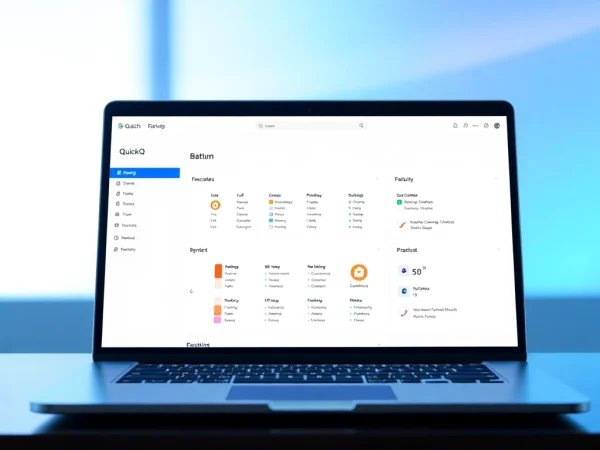Expert Computer Service Solutions for All Your Technology Needs
Understanding Computer Service
What is Computer Service?
Computer service encompasses a wide range of technical support and repair solutions aimed at keeping computers and related hardware in optimal condition. This can include hardware repairs, software installations, virus removal, networking support, and more. Essentially, computer service is critical for both individuals and businesses to ensure their technology functions properly, efficiently, and securely. By turning to experts for computer service, users can benefit from tailored support that not only addresses immediate issues but also boosts long-term performance.
The Importance of Timely Computer Service
The importance of timely computer service cannot be overstated. Computers are integral to daily tasks, whether for work, school, or leisure. When a computer fails or operates suboptimally, it can result in lost productivity, data loss, and higher repair costs in the long run. Timely service can help prevent minor issues from escalating into major problems, thus extending the life of the hardware and ensuring efficient operation.
Common Issues Requiring Computer Service
Among the typical problems requiring computer service are:
- Slow Performance: Often caused by outdated software, insufficient memory, or malware.
- Crashes and Freezes: These can occur due to hardware failures or software conflicts.
- Networking Issues: Problems connecting to the internet or local networks, often needing troubleshooting of hardware or software configurations.
- Data Recovery: This service is essential when systems fail, either due to malware attacks or hardware malfunctions.
- Virus and Malware Infections: Prompt removal is crucial to protect sensitive information and restore system functionality.
Types of Computer Services Available
Mobile Computer Service Options
Mobile computer service options have gained popularity due to their convenience. Technicians can come directly to the user’s location to perform repairs, thus saving time and effort. This service is especially beneficial for those unable to transport their computer, such as businesses needing immediate responses to tech issues. Mobile services typically address on-site repairs, network setups, and software installs, bringing expert solutions right to the user’s doorstep.
In-Store Repair vs. Remote Assistance
When choosing computer service, users often weigh the options of in-store repairs against remote assistance. In-store repairs offer hands-on treatment of hardware issues and allow for the inspection by a technician in person. Conversely, remote assistance utilizes software that enables technicians to take control of the user’s computer over the internet. This approach is effective for software and system settings troubleshooting, streamlining the process and reducing downtime.
Specialized Services: Data Recovery and Virus Removal
Specialized services like data recovery and virus removal are essential for addressing specific technical challenges. Data recovery involves utilizing advanced tools to retrieve lost data from malfunctioning drives or corrupted files. This service is critical for both businesses and individuals who risk losing valuable information. Similarly, virus removal is an urgent service needed to eliminate malware, adware, or spyware that compromises data integrity and system performance.
Choosing the Right Computer Service Provider
Key Qualities to Look For
When searching for a reliable computer service provider, consider the following qualities: expertise, reputation, and transparency. An expert technician should not only be well-versed in various technologies but should also have a track record of solving complex problems. Reputation can be assessed through online reviews and testimonials, providing insight into customer satisfaction and reliability. Transparency in pricing and services helps build trust and sets clear expectations for the customer.
Evaluating Credentials and Experience
It is crucial to evaluate the credentials and experience of technicians before engaging their services. Look for certifications relevant to computer service, such as CompTIA A+, Microsoft Certified Professional, or Cisco Certified Network Associate (CCNA). Additionally, experience matters. A technician with years of hands-on experience is more likely to diagnose issues accurately and offer effective solutions.
Understanding Price Structures
The cost of computer services can vary widely based on several factors, including the type of service needed, the complexity of the issue, and the provider’s pricing model. Some companies charge hourly rates, while others may have fixed fees for specific services. Being informed about these structures can help you choose a service that fits your budget without sacrificing quality. Always ask for estimates upfront, ensuring no hidden fees will surprise you later.
DIY Fixes Prior to Seeking Computer Service
Basic Troubleshooting Steps
Before seeking professional computer service, there are several basic troubleshooting steps users can take. These include rebooting the computer, checking for loose cables, ensuring the power source is functioning, and running antivirus scans. Often, simple steps can resolve minor issues without needing technician intervention.
Identifying Software Issues
Identifying software issues might require checking for recent updates or installations, scanning for malware, or reviewing system logs for errors. Users can also try uninstalling recently added software to see if performance issues improve. Tools built into operating systems, such as Event Viewer for Windows, can help diagnose and track down problematic applications.
When to Call for Professional Help
Despite best efforts, there will be times when DIY solutions fail. Users should consider calling for professional computer service when they experience persistent issues that interfere with productivity, encounter complex errors that are outside their technical knowledge, or if hardware appears to be failing. Knowing when to seek help can prevent further damage and enhance recovery chances.
Maximizing Your Computer’s Lifespan with Regular Service
Preventative Maintenance Tips
Regular preventative maintenance is vital to extending the life of computers. Users should adopt practices like routinely updating software and operating systems, running antivirus scans, cleaning hardware components, and performing data backups. Simple habits such as dusting out computer interiors and avoiding extreme conditions can significantly enhance reliability and functionality.
Setting Up Regular Service Schedules
Setting up regular service schedules can help catch issues before they evolve into significant problems. Depending on usage, consider having the computer professionally serviced at least once a year. Maintenance checks can cover hardware inspections, software updates, disk clean-ups, and system optimizations.
Benefits of Staying Updated with Technology Trends
The technology landscape is continually evolving, which makes it advantageous to stay updated with the latest trends. This includes understanding new security protocols, learning about software optimizations, and knowing when to upgrade hardware. Staying informed can help users make strategic decisions about their tech investments and improve overall performance and user experience.










